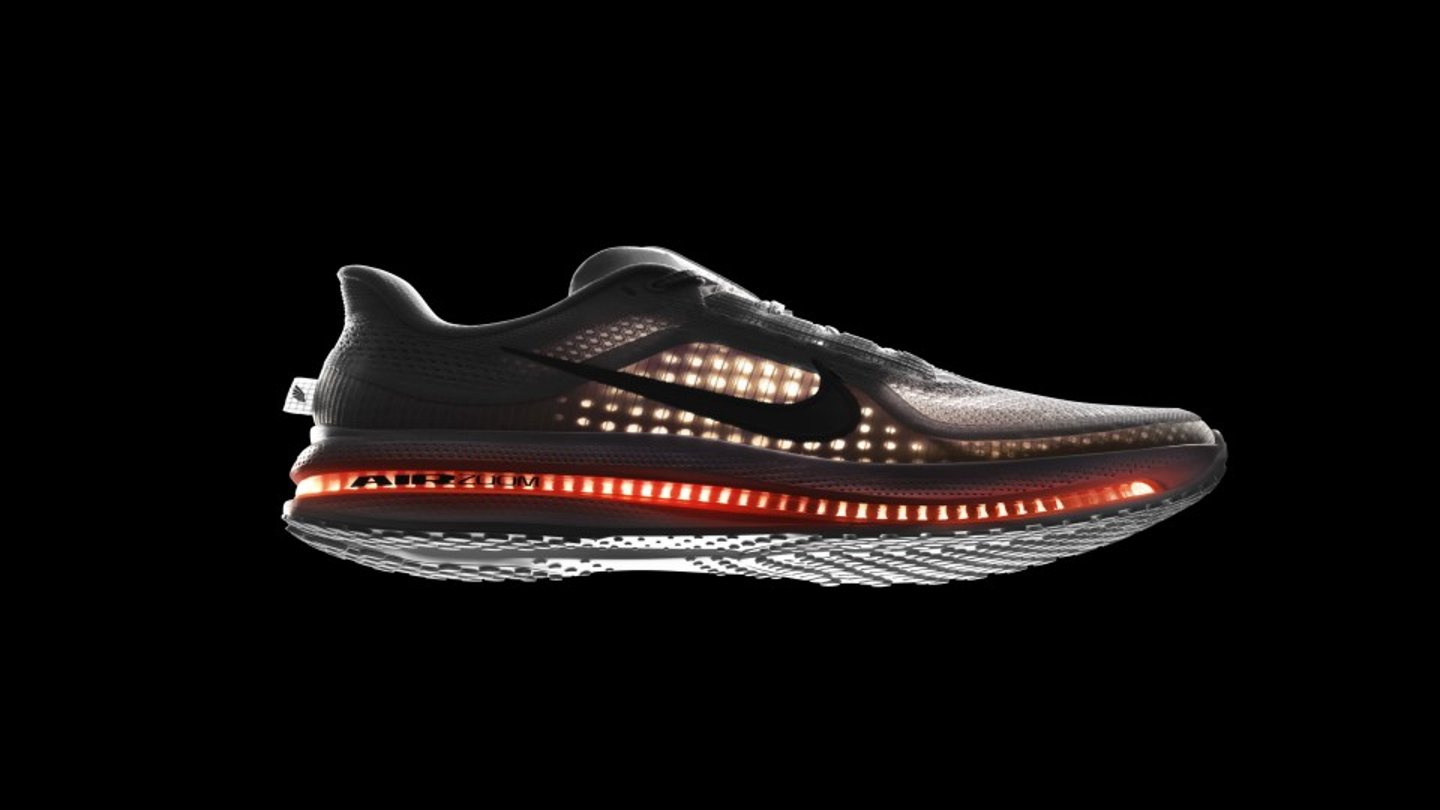Nike Sports Research Lab Expedites Product Innovation With AI and 4D Motion Capture
Nike is ramping up product innovation this summer, supporting its efforts through a tech-powered Sports Research Lab.
The company is tapping into athlete data to inform product development and is optimizing design through computational tech. The latest offering to use these insights is Nike’s Air Zoom unit in the new Pegasus Premium running shoe.
Data Collaborations Boost Innovation
Working with Nike Air Manufacturing Innovation, the research lab also used digital capabilities to predict how its products will react to physical forces. Through a co-creation project between athletes and Nike designers called Athlete Imagined Revolution (AIR), the company created a sole that contours to a runner’s foot to increase springiness and energy with ZoomX and ReactX foam cushioning.
John Hoke, Nike’s chief innovation officer, said that with AIR, the company has been focused on technologies like AI and rapid prototyping. “Taking what we learned from our super-shoe technology, we’re introducing new Nike Air Zoom shapes and sensations across all sports,” he said.
Nike is also using its lab to develop national federation kits — the standard equipment and attire worn by players in association football. To personalize these kits, Nike has tapped 4D motion-capture data with advanced body-mapping tech and pixel-level precision.
The Power of Research & Development
Consumer goods companies are increasingly relying on technology advancements to expedite the product innovation cycle.
Wilson Sporting Goods, for example, is using 3D printing to develop accelerated, digital workflows with fewer inputs that require a lower skill level for designing and building products.
Much of this type of innovation is coming from proprietary global research hubs through which CPGs can access data scientists and the latest in tech developments.
For example, Mars recently invested $70 million in a manufacturing center with an R&D innovation studio retrofitted with a test kitchen, packaging lab, and chocolate production facility.
Meanwhile, Unilever has its Horizon3 Labs and Datalab Ecosystem, which leverage AI-powered innovations at scale, provide patents and learnings from genAI projects, and give them access to a network of data and AI experts.






